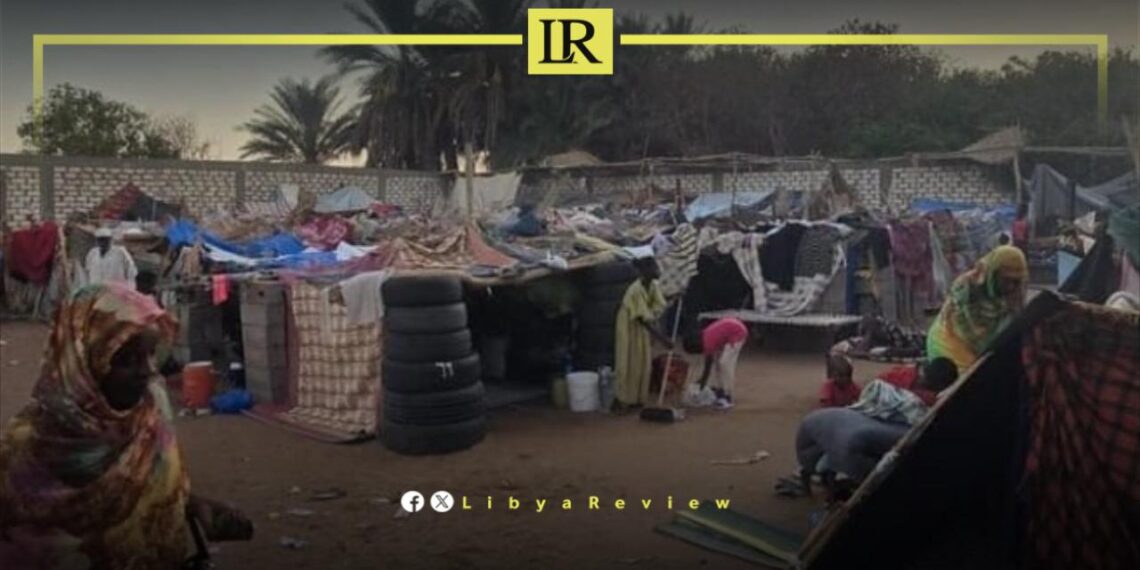Libya is witnessing a growing influx of refugees from Sudan, with around 97,000 individuals seeking refuge since the conflict began. Alkufra, a major entry point, is overwhelmed, receiving approximately 350 new arrivals daily, according to the UN Refugee Agency (UNHCR).
Recent flooding has further strained the region’s infrastructure, forcing some refugees to take temporary shelter in schools. Many others are living in makeshift tents on farms outside Alkufra, facing severe shortages of water, sanitation, and safe shelters, which expose them to extreme weather and health risks.
The UN Refugee Agency (UNHCR) has expressed concern that without adequate support, women, children, and other vulnerable groups will face increased risks of violence and exploitation. The precarious living conditions are exacerbating threats of malnutrition, disease, and loss of education among children.
In response, UNHCR and its partners have intensified emergency aid efforts in eastern Libya, with the cooperation of Libyan authorities. Since the conflict’s onset, over 8,000 refugees in Alkufra have received essential supplies, including blankets, mattresses, and personal care items. The Alkufra General Hospital has also been provided with vital medical equipment and supplies.
Aseer Al Madaien, UNHCR’s Chief of Mission in Libya, emphasized the dire situation: “Women and children continue to bear the brunt of this crisis. As the refugee numbers grow, we urge the international community to support Sudanese refugees and the ongoing humanitarian efforts.”
UNHCR’s response is part of a wider strategy under the 2024 Regional Refugee Response Plan for Sudan, which aims to assist 195,000 Sudanese refugees and Libyan host communities. An urgent appeal for US$48 million has been made to provide critical aid, including food, healthcare, and shelter.


